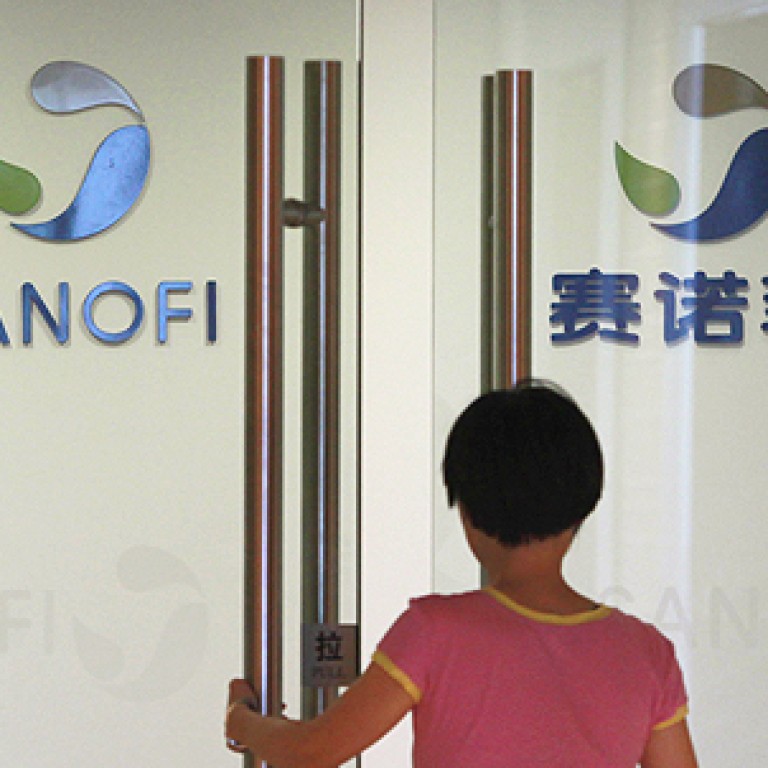
France’s Sanofi takes China bribery claims ‘very seriously’
French pharmaceutical giant Sanofi is taking allegations that its staff bribed more than 500 Chinese doctors a total of US$280,000 six years ago “very seriously”, the company said on Thursday.
A whistleblower provided four documents to China’s newspaper purporting to show that Sanofi staff paid doctors in 79 hospitals bribes totalling 1.71 million yuan (HK$2.16 million) in a bid to increase sales, the newspaper said.
Most of the payments were made to medical staff in hospitals in Beijing, the commercial hub of Shanghai, the southern city of Guangzhou and the eastern city of Hangzhou, and were listed as “research expenses”, the report claims.
The report alleged that Sanofi paid doctors 80 yuan every time a patient bought its products, with the largest payment being 11,200 yuan.
“Sanofi takes very seriously ... the allegations raised in the media report,” the company said in a statement.
“At this time, it would be premature to comment on events that may have occurred in 2007,” it said, without stating whether the company was investigating the allegations.
“We have zero tolerance to any unethical practice,” it added. “Sanofi has established processes in place for reviewing and addressing such issues in a manner that is consistent with our legal and ethical obligations.”
Chinese authorities could not be contacted for comment on the allegations.
The newspaper said the whistleblower did not reveal his identity, but used the pseudonym “Peigun”, the Chinese word for bacon.
The allegations come after four executives from British drug firm GlaxoSmithKline were arrested last month for alleged bribery and other offences.
China’s top economic planner is currently investigating 60 foreign and domestic pharmaceutical companies over their prices.
Last week Sanofi said one of its offices in China had been visited by officials, but that it did not know the purpose of their inquiry.
